Fifteen years ago, Clay Shirky gave a talk at the Web 2.0 conference in New York titled, It’s Not Information Overload, It’s Filter Failure. The theme was that the amount of information we need to deal with in both our personal and professional lives was going to continue to increase exponentially, and that developing and deploying robust information filters was the only way to cope.
For professionals, the problem is particularly acute in the areas of legal and scientific research (i.e., more cases, more articles), but the problem is universal. Effectively dealing with the deluge requires the deployment of filters on many levels.
Examples of Current Database Challenges
While Google does provide filtering capabilities to enhance its search experience, the sheer scale and variety of content within the Google web index pose challenges for them to offer extensive assistance. The user is presented with a variety of buttons to help refine their search results, but it’s difficult to narrow results beyond those available options.

Even the filtering capabilities provided on Google Scholar are perfunctory, and, while the Google Scholar database is large, it’s homogenous, so there are many opportunities to offer advanced and valuable filtering that Google has chosen not to incorporate. All searchers can do is filter by date.
Despite the vastness of the Google Scholar database, the filtering capabilities it offers remain superficial. There are currently many opportunities to incorporate advanced and valuable filtering options, leaving searchers with only the ability to filter by date. This limitation is further exacerbated by the homogeneity of the database. There exist numerous opportunities for Google to enhance the filtering experience, yet they remain untapped.
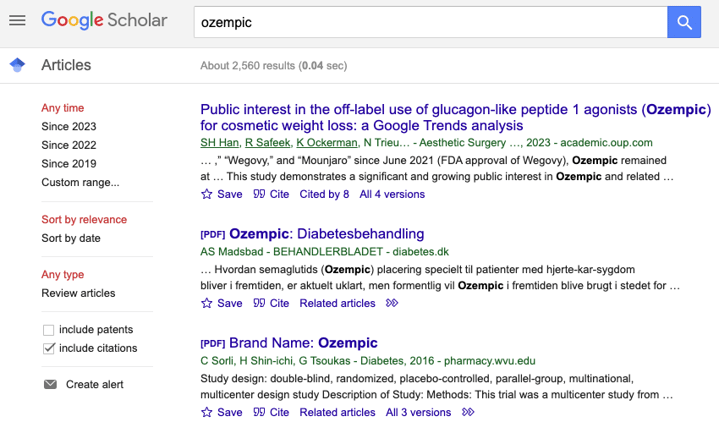
Comprehensive Coverage & Filtering Capability
When it comes to information services aimed at professionals, regardless of their field, there are two key parts of the value proposition: comprehensive coverage and filtering (or screening) capability.
A great example is Bloomberg Law, where the entire user interface is designed as a set of filters. The ultimate goal is to swiftly and effectively guide users to the information that directly addresses their questions, allowing them to seamlessly continue with their workflow. By employing filters, the precision of searches is significantly improved.
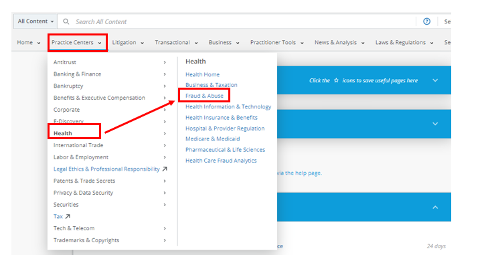
Global & Database-Specific Filters
ResoluteAI’s Foundation incorporates extensive filtering capabilities that facilitate and expedite the delivery of accurate, precise search results. The filters encompass both "global" options that apply to all databases on the platform, as well as database-specific filters that determine whether a patent has been applied for or granted. In certain research scenarios, granted patents serve as a lagging indicator, while patent applications can act as a leading indicator.
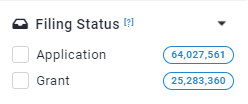
Taxonomies and ontologies are the key global filters applied to all Foundation databases. These encompass prominent frameworks such as PubChem, MedDRA, MeSH, RxNorm, and ICD-10, along with ResoluteAI's exclusive tags and categories. These comprehensive systems ensure efficient organization and retrieval of information, enhancing the overall quality of data management.
Data Visualizations Options
Filters are also extremely valuable when using Foundation’s numerous data visualization options. Take, for example, this heat map that displays recent articles on scoliosis, organized by year, tags, and author affiliation.
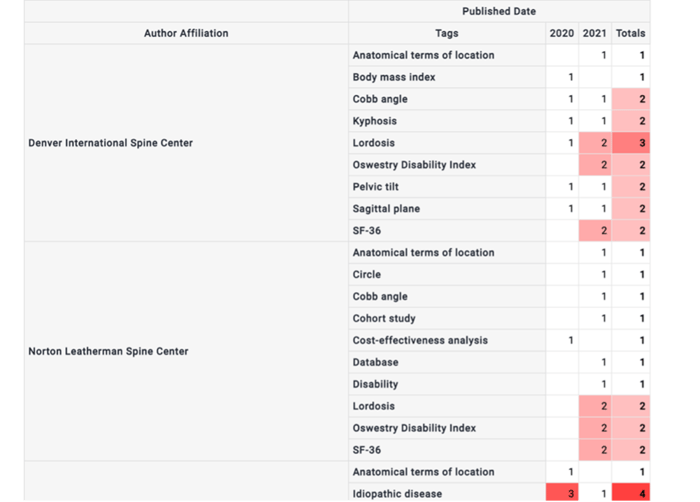
Data Search & Accessibility
Nebula, ResoluteAI’s enterprise search platform, offers a range of other powerful filtering capabilities. These include tagging, image recognition, optical character recognition, and transcription. By extracting content from a customer's SharePoint drive or other data repository, Nebula organizes the data by format and applies the appropriate AI tools, making it easily accessible and filterable. Among the most valuable filters are those that can identify charts, graphs, and maps within a corpus of research.
Many of us have encountered the frustrating "lost PowerPoint slide" situation. You know, when you need to reuse a slide from a presentation you created months ago because it contains a vital visual or crucial data, but you just can't seem to locate it. Well, that's just one of the numerous issues that Nebula addresses and solves.
In the example below, we searched for a graph that mentioned trastuzumab in a large corpus PDF. The graph was embedded in the document as a .png file. Nebula accurately identified the .png as a graph through image recognition and then performed optical character recognition on the image to detect our search term: trastuzumab.
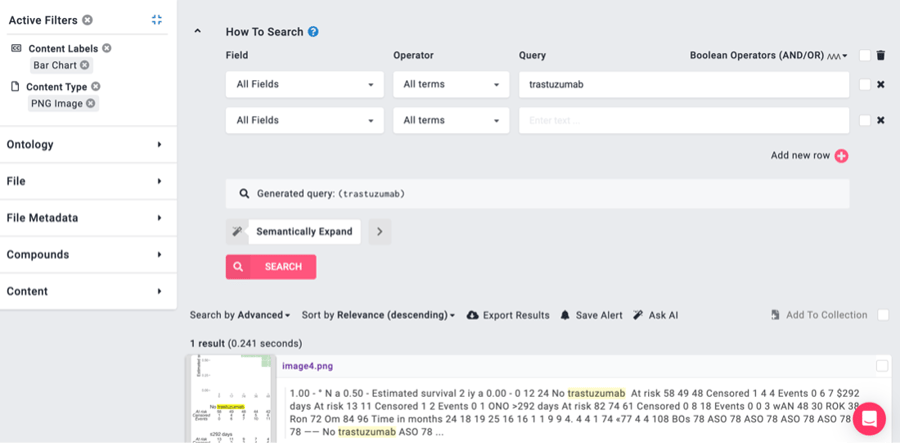
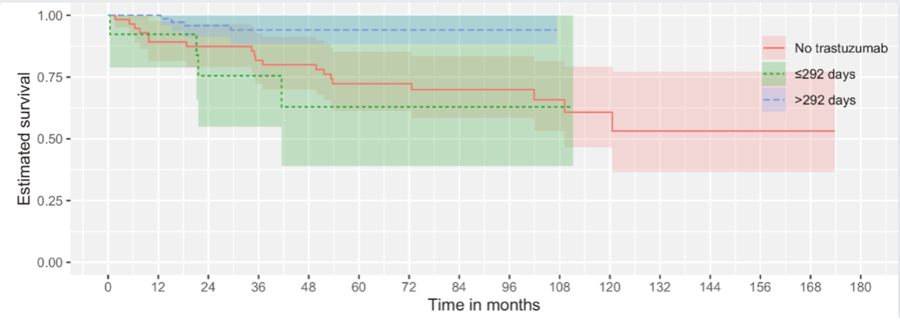
Filters are not the be-all end-all solution for all problems relating to information overload. There are still situations where you are looking for a needle in a haystack, and there’s no way to make the haystack smaller or the needle shinier. But in an abundance of search and discovery situations, having the ability to deploy a robust set of filters can accelerate the process and return a much more precise set of search results.
Unlock Hidden Value in Your Research with Our Comprehensive Suite of Products
We have listened to your requests for an even more powerful search tool that can meet the demands of your workflow. We are excited to respond with the incredible search capabilities of ResoluteAI, now part of the Research Solutions product family.
Alongside these new features, we will continue to provide the same exceptional customer service that customers have come to expect from Research Solutions. We invite you to experience the power of Foundation and Nebula by booking a demo of our AI tools today. Our team is excited to demonstrate how ResoluteAI's products can elevate your research.



